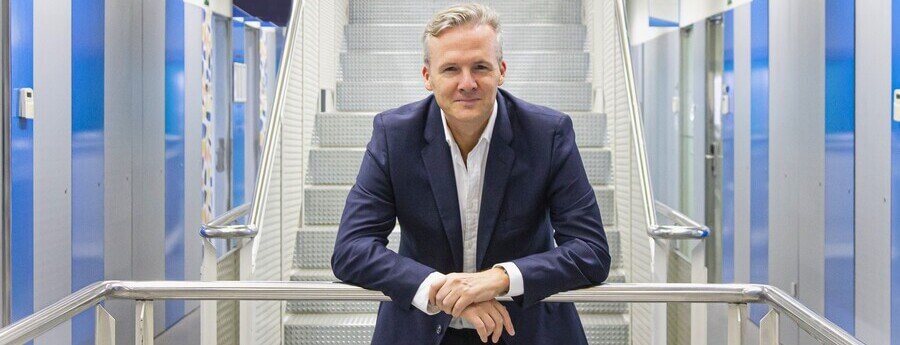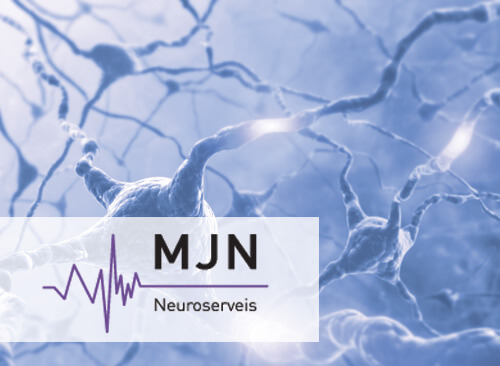- A public-private consortium formed by the biotech company Hemostatics, located in the Barcelona science Park, the Clínica Universidad de Navarra (CUN) and the Institute of Chemical Research of Catalonia (ICIQ) will accelerate the development of a next generation drug to tackle severe haemorrhagic processes, such as those associated with major surgery, trauma or intracranial haemorrhage, without effective treatment.
- The aim of the consortium, which has obtained €2.5 M from the Spanish Research Agency, is to reach the clinical phase of the antifibrinolytic agent CM-352, a drug with a revolutionary therapeutic approach in this field. Until now, the total capital raised to develop the compound amounts to €3M, including €0,3 M from the CDTI’s Neotec programme received in 2022, plus other private funds.
- According to SEMICYUC, haemorrhage accounts for 50% of deaths within 24 hours of traumatic injury, and of up to 80% of intra-operative trauma mortality. It is a very common complication in clinical situations, such as surgeries, and in cardiovascular patients and patients with certain rare genetic diseases. WHO also warns that postpartum haemorrhage (PPH) affects 14 million women each year and is the world’s leading cause of maternal death.
Barcelona, 20 March 2024. A public-private consortium formed by the biotech Hemostatics, based at the Barcelona Science Park, the Clínica Universidad de Navarra (CUN) and the Institute of Chemical Research of Catalonia (ICIQ), has received 2.5 million euros from the Spanish Research Agency (AEI), under the call for grants for Public-Private Collaboration Projects, to accelerate the development of an innovative treatment aimed at controlling disabling and lethal haemorrhage.

The aim of the project, led by Hemostatics – a spin-off from Cima Universidad de Navarra, attached to the CUN – is the preclinical and clinical development of the antifibrinolytic agent CM-352, a first-in-class drug that represents a pioneering therapeutic approach to control severe bleeding in unmet medical needs, such as those associated with major surgery, trauma or intracranial haemorrhage (ICH).
The CM-352 compound is the result of a long research process led by Dr. Josune Orbe (CSO of Hemostatics), head of the CIMA’s Atherothrombosis research group, and Dr. José Antonio Páramo (CMO) of the Hematology Service of the Clínica Universidad de Navarra and member of the Spanish Society of Thrombosis and Haemostasis (SETH).
Based on a technology transfer and exclusive patent licensing agreement, Hemostatics was born in 2020, promoted by CIMA and a team of experts from the health and business sector, led by Dr. Orbe, Dr. Páramo and Nicolas Saglio, CEO of Hemostatics and managing partner at biomedical innovation consultancy HealthTech180, with more than 20 years’ experience in strategic consulting and innovation for technology and healthcare companies.
Until now, the total capital raised to develop the compound amounts to €3M, including €0,3 M from the CDTI’s Neotec programme received in 2022, plus other private funds.
A global health and economic issue
Haemorrhage accounts for up to 50% of trauma deaths occurring worldwide within 24 hours of traumatic injury, according to SEMICYUC-Spanish Society of Intensive and Critical Care Medicine and Coronary Units, and up to 80% of intraoperative trauma mortality. It is a very common complication in cardiovascular patients, or patients with certain rare genetic diseases, as well as in different clinical situations, such as surgeries, or postpartum haemorrhage, which is estimated to affect 14 million women each year and represents the world’s leading cause of maternal death, according to WHO, with some 70,000 deaths annually.
“The socio-economic cost of acute bleeding in trauma cases alone is enormous and causes more than 6 million deaths per year (more than all communicable diseases combined, including COVID-19, malaria, tuberculosis, HIV/AIDS, etc.), and is responsible for a total cost of over $670 billion in the United States alone. However, an antihaemorrhagic agent, that can address the unmet medical needs of severe haemorrhagic processes and minimise the risk of possible side effects in the face of less severe haemorrhagic episodes, has not yet been found,” reveals Nicolas Saglio. “Our compound, CM-352, in addition to reducing this major burden of morbidity and mortality, will significantly reduce the healthcare cost of annual expenditure on blood and transfusion-related activities”.
Public-private partnership to create a next generation antifibrinolytic
CM-352 is a drug with a completely innovative mechanism of action, as it targets cessation of bleeding by inhibiting matrix metalloproteinases (MMPs), a revolutionary pharmacological strategy that promises to be more effective and safer than the current standard antifibrinolytics (TXA and EACA) used in clinical practice to control acute bleeding.
The regulatory preclinical phase will be coordinated by Hemostatics Pharmaceuticals and will involve the integration of the efforts of the Atherothrombosis Research Group (CIMA), led by Dr. Josune Orbe.
“We already have experimental results indicating that CM-352 is highly effective in all major bleeding scenarios, with no signs of toxicity, thrombosis, or off-target adverse effects. We will now complete efficacy, toxicity, pharmacodynamic and pharmacokinetic studies in several preclinical models required by regulatory agencies. Obtaining these results will allow us to reach a key milestone of the project: approval from the health authorities to test CM-352 in a phase I clinical trial. Our initial focus will be on the US FDA. Subsequently, we will also go to the EMA in Europe, and everything will be done in close collaboration with the Spanish agency, the AEMPS,” Saglio explains.
Through the Innovation and Valorisation Laboratory and the High Throughput Experimentation (HTE Laboratory), the ICIQ will address the identification and optimisation of a CM-352 synthesis route that improves the efficiency and reduces the cost of the production process of the molecule. The team involved in the project will be led by Dr. Fernando Bravo, manager of the Knowledge and Technology Transfer Department (KTT) and Industrial Projects, and Dr. Xisco Caldentey, manager of HTE.
“The current synthesis route of CM-352 has enabled us to obtain sufficient compound quantities to progress through the preclinical phases, and ICIQ’s involvement will focus on developing a synthetic process with a new optimised synthesis route, which also allows for robust, reproducible scaling with safety guarantees. This objective will be addressed through a combination of intelligent catalyst design and high-performance parallelisation techniques for reaction optimisation. In this regard, techniques involving the screening of hundreds of reactions using automated analysis systems will be applied, such as the one available at ICIQ’s HTE Laboratory, a unique facility in Spain, with few similar models worldwide. The selection of the final synthetic route for obtaining CM-352 will be based on techno-economic criteria (cost/kg), including the relative cost of purification processes, efficiency, safety, and minimization of environmental impact, thereby facilitating its future industrialization and commercialization”, says Dr. Bravo.
Finally, the CM-352 phase I trial will involve the active participation of CUN, with technical support from CIMA and will focus on severe haemorrhage in traumatology, where there is no treatment with proven clinical efficacy. The study will be carried out by the Haemostasis and Thrombosis Unit of the Haematology Department and the Department of Orthopaedic Surgery, under the coordination of Dr. José Antonio Páramo.
“Our objective will be to evaluate the tolerance and safety of CM-352 in patients undergoing scheduled total knee replacement surgery (total knee arthroplasty) to prevent possible hemorrhagic complications, which constitute a serious associated adverse event. This represents a very important milestone in the compound’s development since, in existing literature, no clinical study has reported the use of MMP inhibitors to treat hemorrhages. The absence of toxicity and secondary effects after treatment with CM-352 will also represent the first time such results are obtained for an MMP inhibitor in humans, allowing us to move to a Phase II focused on severe hemorrhages in traumatology, where there is currently no treatment with proven clinical efficacy”, noted Dr. Páramo.
About Hemostatics Pharmaceuticals
Hemostatics Pharmaceuticals S.L.(https://hemostatics.com/) is a biotechnology company created in 2020 by a highly experienced team that set up a strategic partnership and exclusive licence for the technology with the Foundation for Applied Medical Research (FIMA), which manages CIMA, the Centre for Applied Medical Research of the Clínica Universidad de Navarra (CUN). Hemostatics is developing a new proprietary antifibrinolytic agent, CM-352, to reduce bleeding in disabling and life-threatening haemorrhagic conditions and address a number of important unmet medical needs in trauma, surgery, intracranial haemorrhage (ICH), postpartum haemorrhage (PPH) and gastrointestinal bleeding.
About Clínica Universidad de Navarra (CUN)
With more than 2,800 full-time professionals at its Pamplona and Madrid sites, Clínica Universidad de Navarra (https://www.cun.es/) is an academic hospital and a benchmark in personalised medicine in Spain. Recognised for its research and teaching work, the prestige of its professionals and its experience in the diagnosis and treatment of highly complex pathologies, Clínica Universidad de Navarra is a hospital that produces results through speedy diagnoses, thanks to its multidisciplinary work and acquisition of the latest technology, that allow it to offer care in 46 medical and surgical specialities. Clínica Universidad de Navarra is among the world’s 50 best hospitals, according to the World’s Best Hospitals ranking, and among the 35 best oncology hospitals worldwide according to the World’s Best Specialized Hospitals ranking. For the sixth consecutive year, it has been the private hospital with the best reputation in Spain (according to the MRS ranking).
About the Institute of Chemical Research of Catalonia (ICIQ)
The Institute of Chemical Research of Catalonia (https://www.iciq.org/) is a research centre dedicated to advancing scientific knowledge to address social and economic challenges such as climate change and the sustainable supply of raw materials and energy. It has two Severo Ochoa accreditations as a centre of excellence, which underline its recognition as an international benchmark in frontier chemical research. The ICIQ’s research is based on three pillars: sustainable catalysis, renewable energies and health. Also noteworthy are the lines of collaboration with industry, transferring knowledge and promoting the development of innovative applications, with a special focus on patents and spin-offs.
Project CPP2022-009643 funded by:

For further information:
Azucena Berea • Press Officer • Barcelona Science Park • +34 93 403 46 62 • aberea@pcb.ub.es
Miguel García San Emeterio • Media Director • Clínica Universidad de Navarra • +34 948 255 400 • mgsanemeterio@unav.es
Marina Vives • Corporate Communication • Institut Català d’Investigació Química (ICIQ) • +34 977 92 02 00 • comunicacio@iciq.es








